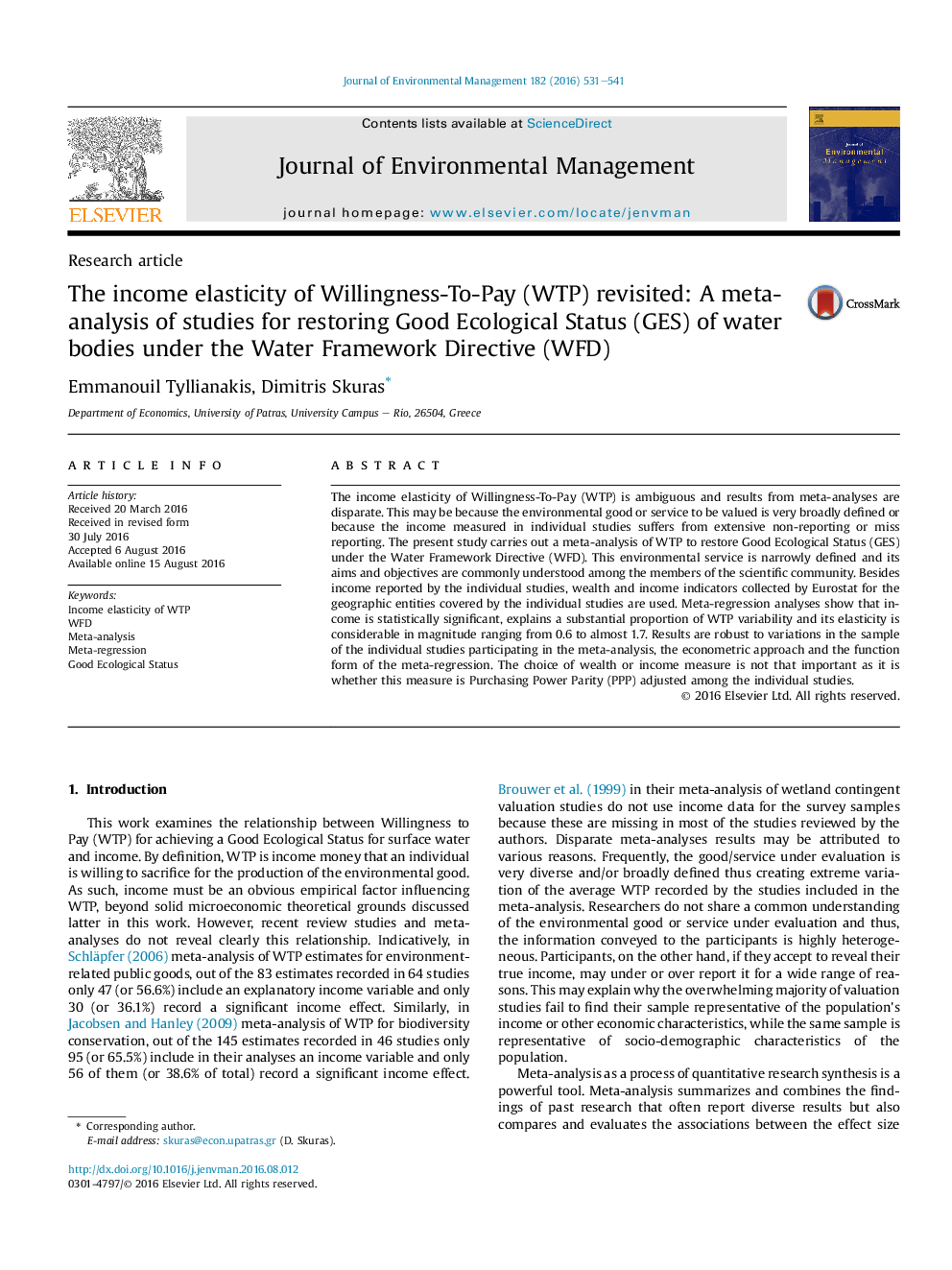| Article ID | Journal | Published Year | Pages | File Type |
|---|---|---|---|---|
| 7479232 | Journal of Environmental Management | 2016 | 11 Pages |
Abstract
The income elasticity of Willingness-To-Pay (WTP) is ambiguous and results from meta-analyses are disparate. This may be because the environmental good or service to be valued is very broadly defined or because the income measured in individual studies suffers from extensive non-reporting or miss reporting. The present study carries out a meta-analysis of WTP to restore Good Ecological Status (GES) under the Water Framework Directive (WFD). This environmental service is narrowly defined and its aims and objectives are commonly understood among the members of the scientific community. Besides income reported by the individual studies, wealth and income indicators collected by Eurostat for the geographic entities covered by the individual studies are used. Meta-regression analyses show that income is statistically significant, explains a substantial proportion of WTP variability and its elasticity is considerable in magnitude ranging from 0.6 to almost 1.7. Results are robust to variations in the sample of the individual studies participating in the meta-analysis, the econometric approach and the function form of the meta-regression. The choice of wealth or income measure is not that important as it is whether this measure is Purchasing Power Parity (PPP) adjusted among the individual studies.
Related Topics
Physical Sciences and Engineering
Energy
Renewable Energy, Sustainability and the Environment
Authors
Emmanouil Tyllianakis, Dimitris Skuras,
